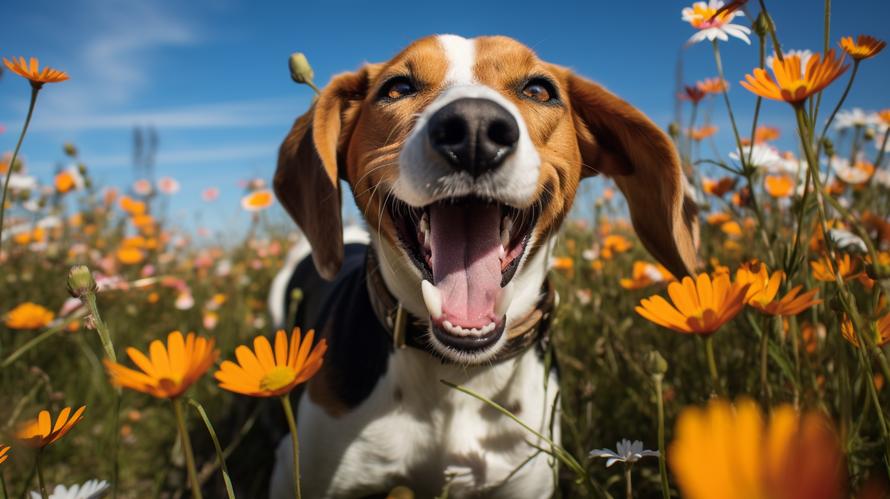The American Foxhound, often seen as the poster dog of classic American countryside living, is not typically associated with aggressiveness or hostility. However, let’s dive deeper into understanding this breed’s temperament, genetics, and training which contribute to its behavior.
Sometimes nicknamed “The American Foxchaser,” this breed is worldly recognized for its hunting prowess. Crafted by years of meticulous breeding, these muscular, short-haired canines have an unparalleled sense of smell, second only to the legendary Bloodhound. From whizzing bullets to Venetian fox hunts, their lineage has seen it all, painting a complex behavioral canvas colored with nature, nurture, and centuries-old genetics. The question of whether this characteristically loving and loyal breed can harbor streaks of aggression, however, is not one with a simple yes or no answer.
Let’s delve into the nature vs. nurture debate. Temperament in dogs, much like humans, sits on the intersection of nature, their inherent genetic make-up and the environment in which they are raised. The American Foxhound, if left unchecked and unattended, can develop behavioral issues that might manifest as aggressive tendencies. But this fact is true for any dog breed, not just the Foxhound.
Characterized by their high energy levels, Foxhounds demand a lot of exercise and stimulation. If their physical and mental needs are not appropriately met, their pent-up energy can manifest in the form of behavioral differences, including aggression. However, it’s essential to remember that these tendencies don’t spring from an inherent nature of violence but rather a mirror of their unfulfilled needs.
As with all dogs, their early initiation into socialization can substantially impact their behavior. Foxhounds are pack dogs; they thrive in multi-dog households. This trait doesn’t suggest that they are aggressive towards those outside their pack but implies they are more comfortable and secure in their conduct with known comrades. A poorly socialized Foxhound, much like a poorly socialized human, may act out with aggression as a defense mechanism against perceived threats. Therefore, early, structured, and continuous socialization with people and other animals will ensure your Foxhound grows up to be a well-rounded dog.
Additionally, the American Foxhound has a high prey drive, a trait embedded in its DNA from years of breeding for hunting. They are prone to chase small, fast-moving creatures, which may be perceived as aggressive behavior. Yet, remember, this behavior comes from an instinctual place of hunting rather than a desire to harm.
Lastly, fear is often the root of aggression in dogs. Foxhounds are no different. If previously maltreated or have bad experiences, particularly at a young and impressionable age, they may display aggressive behavior tinged with fear and anxiety. A caring, nurturing environment coupled with patience and understanding can mitigate these fear-based aggressive tendencies.
It’s essential not to lump all Foxhounds under the same umbrella. Each dog, regardless of its breed, has a unique personality molded by their genetic predispositions, upbringing, experiences, and training. Therefore, not every characteristic or behavior bookended under the breed does justice to individual dogs.
In conclusion, may your Foxhound be a puppy or a mature dog; remember, it’s never too late to train, socialize, and understand your pet. It’s essential to tune into their individual needs, ensuring their mental and physical requirements are met. Their behavior is often a reflection of their interactions with the environment. So provide an environment for your Foxhound that helps them grow into the happy, affectionate, and balanced dog we know this breed to be. These steps will largely keep aggression at bay, not just in Foxhounds, but any dog breed, making for a rewarding, lifelong companionship.
Remember – a loved and understood Foxhound is a happy and peaceful Foxhound.



